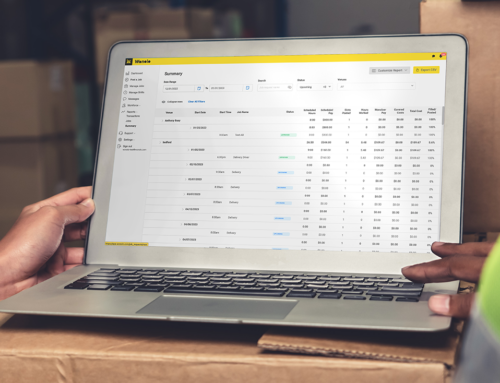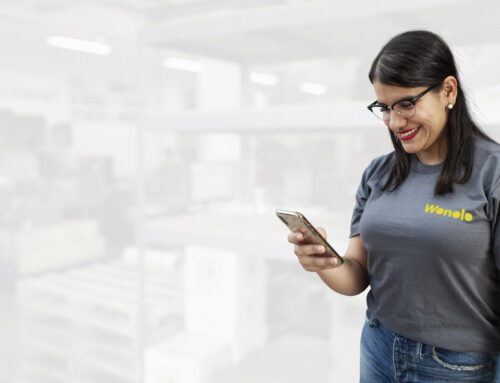Yong Kim
Let’s meet Yasi. What are you grateful for today?
I’m grateful to have the opportunity to wake up every day and do what I love! I feel blessed to be involved in the important mission of making work fun and flexible for everyone through the power of technology and work every day with a group of driven, dedicated, and talented colleagues towards our big goals. Growing up internationally, I understand that many people around the world who live under a state of war or in an underdeveloped area struggle for the basics of life such as safety, food, water, and shelter. So, every day, I don’t underestimate how grateful I am to have those basics.

I’m also beyond grateful for my amazing husband, my two understanding kids (both under the age of 4), and our caring families, all of whom have supported me as I continue to dream big and do what I love – serving others through designing and building technology-enabled products.
When you were in high school, what did you dream of becoming?
I grew up in an Eastern culture where it was assumed that every kid should become a doctor or an engineer to be considered successful. Despite the fact that I found both fields interesting, I didn’t have enough passion for either medicine or engineering. From an early age, I was one of those kids that liked to take the unpaved path and make decisions based on my own criteria.
Growing up, I definitely didn’t know anything about product management or any of the other fields I’ve worked in, like venture capital and investment banking.
What events in your life have led you to your current role/job today?
At the age of 14, I started a handmade jewelry business in my hometown of Tehran; that business became successful very quickly. From there, I realized that I have a strong business sense and entrepreneurial spirit.
That passion eventually led me to pursue a degree in business and start a tech startup in the U.S. Even though the tech startup failed after 18 months, it was one of the most formative experiences of my career. I realized that out of all the different hats I wore as a founder, what I loved the most was making something meaningful from nothing and working with designers and engineers to bring my vision to reality. That’s how I stumbled upon the field of product management, which ended up being an awesome fit for my passion and personality. Since then, I’ve never looked back, and I’ve never found myself pondering what I should become when I grow up.
When things do not turn out the way you planned, what is the first thing you do?

I view obstacles and unplanned twists and turns as par for the course; as a result, I do not get overly excited about either good news or bad news. When my team struggles, I tend to remind them that if it was easy and all figured out, none of us would have been hired for our roles.
With that said, I’m still super goal-oriented and have high expectations for anything I start or commit to. So when things don’t go as well as planned, I might get upset for a minute, but then my rational part kicks in pretty quickly, and I do a root cause analysis. That typically means I need to communicate with my team and/or cross-functionally. After understanding the source(s) of the problem, I typically do a risk benefit analysis on the possible solutions, make a decision, build consensus, get everyone excited and inspired for the new/adjusted direction, and move forward.
I very much use the same methodology in my personal life as well.
When you have to make a difficult decision, what do you lean on?
Throughout my life I’ve realized that we all face decision making processes all the time, some more difficult than others. In particular, the more responsibilities you take on in your personal and professional life, the more decisions you have to make, and the stakes could be higher. As I’ve taken on more responsibilities in both my personal and professional life in recent years, I designed a few frameworks to help me make decisions faster and more effectively.
For instance, in my personal life and in my career choices, I’ve always prioritized people, passion, and values. If a direction I’m considering is not aligned with my values or takes me away from my passion, I know it’s not the right direction for me. I pass the same framework on to my students in the Product Management course I teach to MBA students at Haas School of Business. I encourage them to first figure out their big goals in life and the elements they need to have in order to be “happy”. Then I invite them to try to make every decision to get a step closer to those goals while making sure those elements are present most days.

Recently, I faced one of the most difficult decisions of my life; I turned down a job offer to be Chief Product Officer of a public company. Due to the stage of that company, the nature of their business, and the needs they had, I would have spent most of my time and energy doing things I didn’t find myself very passionate about. Knowing myself well, understanding what elements make me happy, and having a strong framework to rely on empowered me to move forward with my decision with confidence and excitement and be happy about the outcome.
For business related decisions, I tend to go after data, facts, and validations. If those are not available, I trust my intuition, pull from my past experiences, and use parallel examples (from other companies, stories, books, and cases).
I’m also a huge fan of iteration and learning along the way. In both personal and professional decisions, the chances of getting everything right on the first shot is quite low.
What is one piece of advice you can give to anyone?
View and use “empathy” as a skill that will give you an edge in your career and in your personal life. Listen to others with diligence and care so that you can better understand their points of view. I have found that having empathy is a useful skill to apply, especially during the tough times and conflicts with your partner, kids, parents, siblings, boss, direct reports, clients, friends, and colleagues.
Putting yourself into others’ shoes will empower you to understand them better and could prevent many of the conflicts that happen when each person sees the world solely from their own vantage point.
Please finish this sentence: If you really knew me, you would know that ______.
If you really knew me, you would know that I’m a people person and my relationships are the most valuable things in my life. I can connect with anyone and everyone and become friends with them; that’s mostly because I’m genuinely interested in learning about people’s backgrounds and life experiences.
I tend to stay in touch with everyone, from old friends and classmates to former colleagues. I always like to bring everyone together for social gatherings or host them at my home.
Finally, if you “really really” knew me, you would know that I love dancing and skiing!






